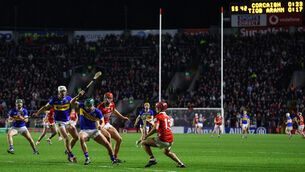It’s time to tackle football inequalities

Will your county be in next week’s figures? Behind every number, there are real persons. Every time you complain about the football championship’s inequalities, you can help to lower these numbers.
Forgive the poetic licence taken with the Road Safety Authority’s jarring radio advertisement but when a lopsided result or two prompts the annual football championship debate only for it to die away with a chorus of head shaking. Well, this isn’t winter talk and it’s not going to go away. What has happened to Longford, Waterford and Carlow in recent weeks tells a sorry tale that can’t be ignored.












